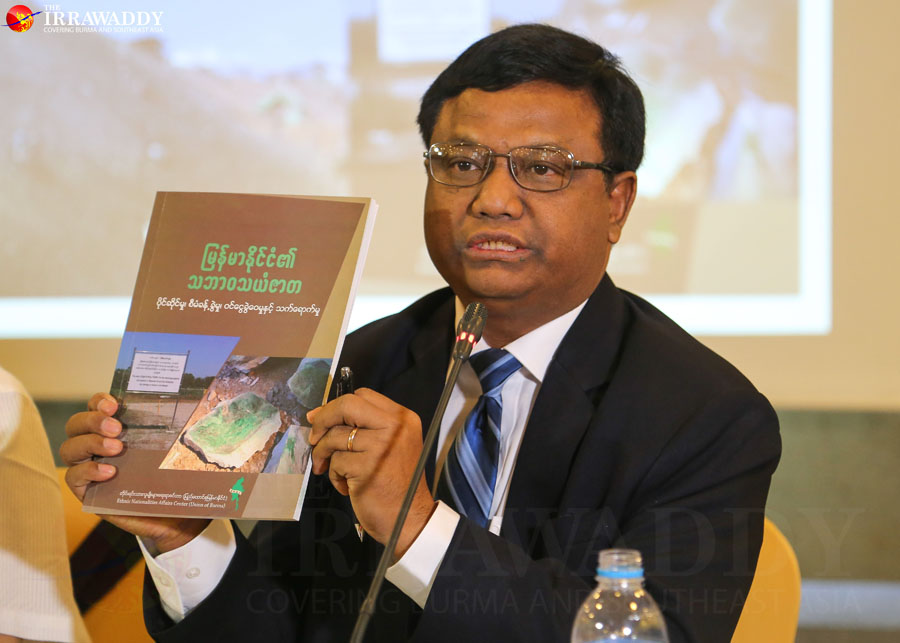RANGOON — A new research paper issued by the Ethnic Nationalities Affairs Center (ENAC) describes how natural resource revenue could be shared between Burma’s central and state governments in a federal system.
ENAC works in support of the peace process between ethnic armed organizations and the Burmese government. Representatives from ethnic political parties, armed groups, civil society and community-based organizations contributed to the development of federal policies outlined in ENAC’s most recent report on natural resource management. Subsequent reports will cover seven additional areas: agriculture, health, land, internal displacement, trade and investment, humanitarian aid, and taxes. The first report, on education policy recommendations, was released in October 2016.
According to policies laid out in the new research paper, ENAC and its partners recommend that that state get 70 percent of natural resource revenue, and that 30 percent should go to the central government. Each state, the report recommended, should own its own natural resources in its respective territory.
The paper also stated that for mining projects to commence, a consensus with the local population must be obtained.
ENAC describes two strategies with which to potentially amend laws on natural resource ownership—through Parliament or through the peace process, within political dialogue.
Article 37 of Burma’s existing military-drafted 2008 Constitution states that the government owns all natural resources from the air, water, and ground.
“It needs to change,” said Zo Tum Hmung, ENAC’s executive director and a researcher for the report.
ENAC members conducted research mainly in Arakan State, which is rich in natural gas, and in Kachin State, known for jade mining. The report revealed that locals felt they did not economically benefit from the harvesting of natural resources in their areas, as the revenue largely goes to the central government; they also lamented the environmental degradation associated with resource extraction.
Zo Tum Hmung said, “We visited Arakan and found some houses that were very poor. This should not happen, because this is a state where gas is produced.”
On his visit to Kachin State, he met the state’s chief minister and also went to the mines of Hpakant.
“We saw a mining site where there were so many mining trucks they resembled a colony of ants. The mining companies drill as much as they want, and there is no proper system about where to drill. They do not care about environment, and the mountains could have landslides,” Zo Tum Hmung warned.
He described witnessing the environmental degradation of the mining projects.

“The river of Ohru has collapsed. The companies abandon unused mining soil, and it blocks waterways along the river. There is not even a proper bridge, even though this area produces a lot of jade,” he said.
ENAC intends for the report to be used during the second 21st Century Panglong peace conference, scheduled for early March, according to Sai Nyunt Lwin, a member of ENAC’s board of directors.
“Our country could decide in the future on a better system regarding how to share natural resources. This report was not only written for one organization or for a group of people. We need to find out the best way to share resources, and how to manage them—these things are very important,” he said.
ENAC’s research included case studies from four other countries, including Sudan, Nigeria, Canada, and Aceh in Indonesia, outlining how these countries have shared revenue between the central and state governments. Two amended the Constitution in Parliament, regarding the issue of natural resources, and two made changes to policy through peace talks.
“We could learn a lot from these countries. This relates to our country, as our country tries to amend the Constitution. Our country is also having a peace process. Our report will help our people a lot, especially those who are policymakers,” said ENAC deputy executive director Nai Pon Nya Mon.

















